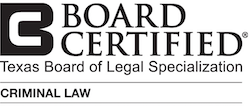Out of State Driver's Licenses
How do DWI license suspensions relate to out of state driving licenses?
The Interstate Compact was enacted and put into place so driving license suspensions would be uniform across all states. The Driver License Compact (DLC) agreement is an interstate compact used by states of the United States to exchange information concerning license suspensions and traffic violations of non-residents and forward them to the state where they are licensed known as the home state. Its basic and overarching theme is"One Driver, One License, One Record." The home state, therefore, theoretically, would treat the offense as if it had been committed at home, applying home state laws to the out-of-state offense. The action taken would include, but not be limited to, offenses such as speeding, suspension of license, and/or DWI/DUI.
It is not supposed to include non-moving violations like parking tickets, tinted windows, loud exhaust, etc. If you are convicted for a violation in the state of Texas, you may only lose your driving privileges. However, Texas will report your conviction to your home state, and they may suspend your license for a period of time as if you were convicted in your state for the offense.
The Driver’s License Compact requires the member states to report tickets received by motorist to the state where they received their driver’s license because they get an insurance premium with the additional points. When a state suspends the driver’s license of those who reside outside the State of Texas, their home state will also suspend their license. Texas is a member of the Driver’s License Compact and will report any infractions to the convicted motorist’s home state regardless.
As of now, Georgia, Massachusetts, Michigan, Wisconsin and Tennessee are the only states who are not members of the Driver’s License Compact. The states of Georgia, Michigan and Wisconsin, however, still might report tickets to your home state even though they may not be members of the Compact.
If you are an out of state driver who has received a conviction, you need to call and discuss your situation with a Texas DWI Defense Attorney to discuss the ways you can limit your exposure from any potential loss of driving privileges in the state of Texas, as well as wherever your original driver's license is from.
How do certain States treat a Texas DWI license suspension differently?
If you have been charged with a "refusal," there may be a way to save your driving privileges in your home state.
How other States treat out of State matters:
- Colorado, Ohio and Wisconsin do not assess points for out of state convictions. Colorado does not make an entry for out of state convictions for speeding.
- New York has the same rules that apply for Colorado except New York will apply the points for moving violations in Ontario and Quebec Canada.
- Georgia and Michigan will assess the points for out of state tickets.
- Kentucky does not assess points for out of state speeding tickets, but will for other types of tickets.
- North Carolina and Vermont do not report tickets to your home state unless the violation results in a license suspension.
- North Carolina will not assess points for out of state tickets unless the violation, if committed in North Carolina results in a suspension.
- Arizona, Iowa, Kansas, Minnesota, South Dakota and Wyoming will not put speeding tickets on record unless it is 10 mph or more above the speed limit. If the violation was committed by an out of state motorist, the violation may still be reported to the home state, which may result in points being assessed.
- South Dakota will not assess points for speeding tickets. This may change since the repeal of the National Speed Limit.
Out of State License Suspensions
Despite the Interstate Compact agreeement between States, one should always request an Administrative License Revocation Hearing in Texas through the Texas Department of Public Safety. In a lot of cases, the license suspension never reaches the home state. From our experience, it most easily reaches States that are contiguous to Texas (but this is not always the case). Predicting what Texas DPS is going to do, on any given case, is literallly impossible. Therefore, it is wise to seek an experienced and knowledgeable Texas DWI Defense Attorney about your situation if this is a concern for you, or a loved one.
Contact Us Now
You can contact The Law Offices of Carl David Ceder at anytime for assistance at 214.702.CARL(2275) or at 469.2000.DWI(394). You can also e-mail Carl directly, at Carl@CederLaw.com; or to the office for general inquiries at Info@DFWDefenders.com. Phones should be answered 24 hours a day/7 days a week for immediate and prompt assistance. E-mail messages will try to be responded to with 24-48 hours, depending on whether Carl and his team is in trial and/or is busy working on a case for a contested hearing.




















